The test for death is the red-hot iron or hot brand (used by the Abyssinians of to-day, as it was supposed in the thirteenth century to have been used by Grimhild."And now Grimhild goes and takes a great brand, where the house had burnt, and goes to Gernot her brother, and thrusts the burning brand in his mouth, and will know whether he is dead or living.But Gernot was clearly dead.And now she goes to Gislher and thrusts the firebrand in his mouth.He was not dead before, but Gislher died of that.Now King Thidrec of Bern saw what Grimhild is doing, and speaks to King Attila.`See how that devil Grimhild, thy wife, is killing her brothers, the good warriors, and how many men have lost their lives for her sake, and how many good men she has destroyed, Huns and Amalungs and Niflungs; and in the same way would she bring thee and me to hell, if she could do it?'
Then spake King Attila, `Surely she is a devil, and slay thou her, and that were a good work if thou had done it seven nights ago! Then many a gallant fellow were whole that is now dead.'
Now King Thidrec springs at Grimhild and swings up his sword Eckisax, and hews her asunder at the middle").
It was believed (as in Polynesia, where "Captain Cook's path" was shown in the grass) that the heat of the hero's body might blast the grass; so Starcad's entrails withered the grass.
It was believed that a severed head might bite the ground in rage, and there were certainly plenty of opportunities for observation of such cases.
It was believed that a "dumb man" might be so wrought on by passion that he would speak, and wholly acquire speech-power.
Little is told of "surgery", but in one case of intestines protruding owing to wounds, withies were employed to bind round the trunk and keep the bowels from risk till the patient could be taken to a house and his wounds examined and dressed.It was considered heroic to pay little heed to wounds that were not dangerous, but just to leave them to nature.
Personal "cleanliness" was not higher than among savages now.Alover is loused by his lady after the mediaeval fashion.
CHRISTIANITY -- In the first nine books of Saxo, which are devoted to heathendom, there is not much save the author's own Christian point of view that smacks of the New Faith.The apostleships of Ansgarius in Denmark, the conversion of King Eric, the Christianity of several later Danish Kings, one of whom was (like Olaf Tryggwason) baptised in Britain are also noticed.
Of "Christian legends" and beliefs, besides the euhemerist theory, widely held, of the heathen gods there are few hints, save the idea that Christ was born in the reign of Frode, Frode having been somehow synchronised with Augustus, in whose reign also there was a world-peace.
Of course the christening of Scandinavia is history, and the mythic books are little concerned with it.The episode in Adam of Bremen, where the king offers the people, if they want a new god, to deify Eric, one of their hero-kings, is eminently characteristic and true.
FOLK-TALES.
There might be a classification of Saxo's stories akin to that of the Irish poets, Battles, Sieges, Voyages, Rapes, Cattle Forays, etc.; and quite apart from the historic element, however faint and legendary, there are a set of stories ascribed by him, or rather his authorities, to definite persons, which had, even in his day, probably long been the property of Tis, their original owners not being known owing to lapse of time and the wear of memory, and the natural and accidental catastrophies that impair the human record.Such are the "Dragon-Slayer" stories.In one type of these the hero (Frithlaf) is cast on a desolate island, and warned by a dream to attack and slay a dragon guarding treasure.He wakes, sees the dragon arise out of the waves, apparently, to come ashore and go back to the cavern or mound wherein the treasure lay.His scales are too hard to pierce; he is terribly strong, lashing trees down with his tail, and wearing a deep path through the wood and over the stones with his huge and perpetual bulk; but the hero, covered with hide-wrapped shield against the poison, gets down into the hollow path, and pierces the monster from below, afterward rifling its underground store and carrying off its treasure.
Again the story is repeated; the hero (Frode Haddingsson) is warned by a countryman of the island-dragon and its hoard, is told to cover his shield and body with bulls' hides against the poison, and smite the monster's belly.The dragon goes to drink, and, as it is coming back, it is attacked, slain, and its treasure lifted precisely as before.The analogies with the Beowulf and Sigfred stories are evident; but no great poet has arisen to weave the dragon-slaying intimately into the lives of Frode and Frithlaf as they have been woven into the tragedy of Sigfred the wooer of Brunhild and, if Dr.Vigffisson be right the conqueror of Varus, or into the story of Beowulf, whose real engagements were with sea-monsters, not fiery dragons.
Another type is that of the "Loathly Worm".A king out hunting (Herod or Herraud, King of Sweden), for some unexplained reason brings home two small snakes as presents for his daughter.They wax wonderfully, have to be fed a whole ox a day, and proceed to poison and waste the countryside.The wretched king is forced to offer his daughter (Thora) to anyone who will slay them.The hero (Ragnar) devises a dress of a peculiar kind (by help of his nurse, apparently), in this case, woolly mantle and hairy breeches all frozen and ice-covered to resist the venom, then strapping his spear to his hand, he encounters them boldly alone.














